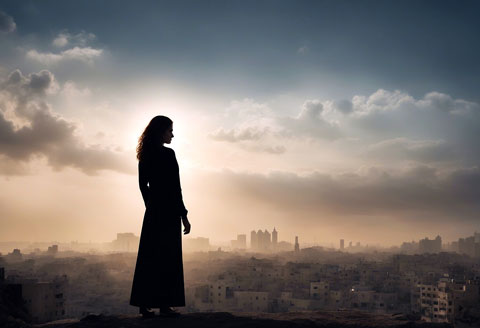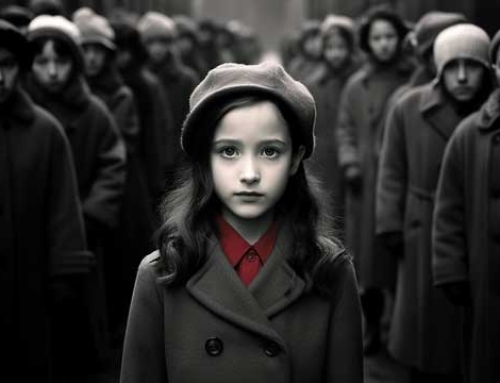Let’s delve into an important and sensitive topic: the situation of women’s rights under Islamist regimes, such as that of women under Hamas in Gaza. It’s important to emphasise that this is a complex and multifaceted topic, and I will do my best to present it in a clear and accessible manner.
Women under Hamas: A Hidden Struggle for Their Rights
Under the Hamas regime in Gaza, women face a series of restrictions that severely limit their freedom and opportunities in daily life. These restrictions are deeply rooted in a strict interpretation of religious and cultural norms and have a significant impact on various aspects of women’s lives.
Women under Hamas in Gaza: Dress Codes and Social Norms
One of the most visible restrictions is the dress codes. Women are expected to adhere to an extremely conservative style of dress, which often means covering their hair and body. These prescriptions are not just a matter of personal choice but are enforced by social pressure and, in some cases, even by the authorities. Non-compliance with these dress codes can lead to social exclusion and, in extreme cases, even criminal consequences.
Restrictions in Public Life
The freedom of movement of women in Gaza is also significantly limited. There are restrictions on where and when women can travel alone, and with whom they can be in public. These restrictions are often justified under the guise of ‘protection’ or ‘tradition’, but in reality, they limit women’s autonomy and their ability to participate in public life.
Women under Hamas : Access to Education and Work
These restrictions also have a direct impact on women’s access to education and employment. Although there are women who study and work, they often face additional obstacles. In some cases, women are discouraged or even prohibited from pursuing certain fields of study or certain professions. This limits their opportunities to become economically independent and build a career.
Economic Independence
The limited access to education and work has direct consequences for the economic independence of women. Many are dependent on their male relatives for financial support, which weakens their negotiating position within the family and society. This can lead to a vicious cycle of dependency and limited opportunities to escape an oppressive situation.
Personal Freedom: A Distant Dream
The personal freedom of women under Hamas in Gaza is severely restricted. This includes not only their choice of clothing or freedom of movement but also extends to personal decisions such as marriage and divorce. Women often have little or no say in these personal matters, which seriously undermines their autonomy.
LGBTI+ Rights: A Taboo with Extreme Consequences
The topic of LGBTI+ rights is not only sensitive and largely taboo in the Gaza Strip, but it also entails extreme dangers. Under the Hamas regime, individuals who openly belong to the LGBTI+ community often face severe discrimination and, in some cases, even horrific violence.
A Life of Fear and Danger
For LGBTI+ individuals in Gaza, their identity means living in constant fear. They are not only socially excluded but also risk arrest, imprisonment, and, in extreme cases, even torture and execution. There are reports that LGBTI+ individuals in areas controlled by Hamas are subjected to the most barbaric punishments, including being thrown off the roofs of buildings, a penalty often carried out publicly.
No Room for Self-Expression
In a society where norms and values are strictly monitored and enforced, there is little or no room for self-expression or deviating from traditional gender roles. This makes it almost impossible for LGBTI+ individuals to live openly according to their true identity, forcing many to lead a double life.
Beyond the Shadow of Oppression: A Cry for Change
The limited freedom and opportunities for women under the Hamas regime in Gaza are a complex problem that deeply affects daily life. These restrictions are not only a violation of fundamental human rights but also undermine the potential and contribution of women to society. It is essential that these issues are addressed and that steps are taken to improve the position of women in Gaza.







